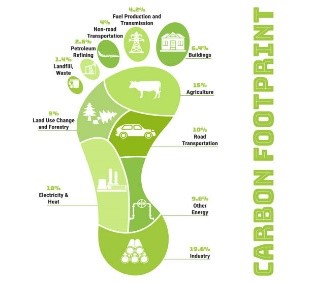INP-WealthPk
Faiza Tehseen
Afforestation and agro farming play an important role in CO₂ emissions reduction, ecological conservation and socio-economic development of a country, said former chief conservator and ex-secretary of Sindh Forest and Wildlife Department (SFWD) Aijaz Nizamani while talking to WealthPK. ‘Forests in Sindh mainly consist of mangroves (in the Indus Delta, e.g., Shah Bundar, Ketti Bundar, Sujawal, etc.) and extremely fertile riverine (mostly consisting of Acacia). A month ago, the Sindh government received a non-refundable debt and interest-free amount of around Rs3.25 billion from the global private companies as a carbon credit transaction. It is issued at US$15 per ton of carbon content arrestation, which is called delivery.
The government accounts will receive this value per annum for the next 60 years. It will be paid against yearly forestation growth and the quantity of delivery.” Nizamani said mangroves act as an asset to the global companies to invest against the CO₂ footprint and are sold in the international carbon credit market. ‘’In the SFWD jurisdiction, 99% of mangroves are in the Indus delta. Satellite imageries prove that they have tremendously increased by 15 times more in the past two decades. Mangroves are serving multiple socio-economic issues.
They offer the hatching/feeding fields for multiple marine species and more than 500 households are earning their livelihood through watching and warding them.’’ ‘’In the mid-’90s, I participated in a research program on acacia trees conducted by the Australian Government and SFWD in Tandojam. Physical devices were fixed with each tree and it was concluded that a five-year-old acacia tree transpires app 80 liters of water in summer. Acacia is from a leguminous family; it engages the earth and riverain forests are mostly acacia.
Pakistan is the 4th largest irrigation country in the world without any proper storage and irrigational drainage system. Lack of water drainage is one of the major causes of the tremendous disaster caused by rains in 2022. At least 10% of conserved forests would help overcome it. To conserve the riverine forest area consisting of about 7 to 8 lakh acres of land, I developed a policy in 2019 and it was approved by the departments concerned but was shelved,’’ Nizamani continued. ‘’Forestry on farmland is called agroforestry. Irrigating means that you divert water toward your farmland, which will raise the water table gradually. Crops are usually shallow rooting and cannot transpire the excess water.
For sustainable farming and to avoid salination, trees, such as acacia and eucalyptus, are necessary to be planted for transpiration. Now, luckily if you plant trees, you can earn dual benefits. There is a buyer willing to own them by paying for a carbon credit to offset his carbon footprint. For the carbon credit, international companies are keen to invest the money. But, the first asset, e.g. trees must be declared, verified, owned, and then paid. For example, when it will be quoted that Microsoft has emitted 100 billion tons of carbon in 2021, then they will show that in Pakistan they offset the carbon at such places.’’

Now, globally CO₂ neutralization is emphasized at all levels, i.e. domestic, industry, etc. Pakistan has also pledged to be CO₂ neutralized till 2060. For the last 70 to 80 years, frequent global use of fossil fuels, including coal and hydrocarbons, has caused an existential threat to our planet. Modern development and industrialization are adding app 40 billion tons of CO₂ emissions yearly to the atmosphere. Now, the problem is how to offset these emissions.
The Climate Change Conference (COP27) was held in Egypt in Nov 2022, and experts agreed on the inability to address global emissions reduction technologically except for the nature-based solution, i.e. replanting, and forestation. ‘’The Carbon Credit Market consists of two aspects, i.e. the voluntary market and the compliance market (it is developed to deal with the buying and selling of CO₂ offsets in a standard limit, also named a cap and trade emissions reduction market).
It is growing so fast because of gaining monetary value. Pakistan is too much in debt and earning money by helping decrease the carbon footprint can be used for a lot of socio-economic uplift. It requires a new business model addressing the value chain and all other aspects of gaining monetary value. Proper development of a clear vision from the government and linking companies is also important for accessing and bridging the international buyer. The media can play a positive role in this concern by bringing awareness in people, especially farmers and policymakers, to take it as an opportunity and reap its fruits honestly, added Aijaz Nizamani.
Credit : Independent News Pakistan-WealthPk




